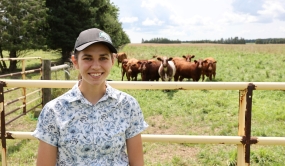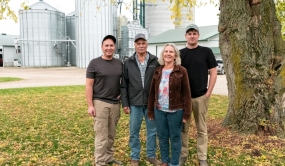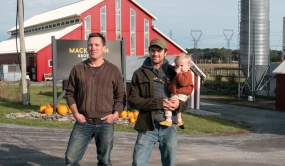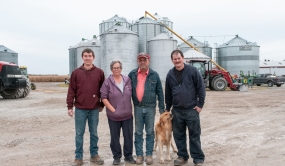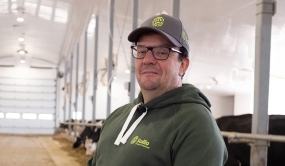The WE generation

Read all of « Food for thought »
Oh how time flies! We were beginning to understand how generation Y thinks, the business world had finally recognized their distinctiveness and how to attract and retain them in the workforce, and now they say that a new generation is about to arrive, the Z gen.
Who is this new arrival and how can we attract them? Good news: inquiries conducted with Z Gen representatives have found that they will be, get this, the “we” generation!
First, let’s find out what’s what. The Y generation was born between 1981 and 1994; the Zs between 1995 and 2010. In fact, generations Y and Z both present characteristics that would reasonably lead them to cooperatives: the common good is a priority for them, and so are collaboration and social commitment. However, a comparative study conducted by Sparks & Honey, an advertising firm, prompted a few interesting nuances. Generation Z has been observed as being more open and altruistic. In fact, 60% of generation Z want to do their part to change the world, compared with only 39% of Y. Perhaps Gen. Z will be viewed as a generation of dreamers, but lets not get this wrong, they’re also a generation of doers: more than one in four respondents were involved in volunteer activities.
The study also reported that money was not as important for this particular generation. Their primary motivations are to be challenged, to enjoy a pleasant work environment and opportunities to collaborate. Émilie Trempe of Proxima Centauri reported during a conference that “Salary comes after these considerations”. A different study, as conducted by Millennial Branding, came to this same conclusion: money will only motivate 28% of generation Z to work harder, compared with 42% of Y… Businesses will therefore have to polish up their organizational culture to attract these young people.
Randstad Canada, a consulting firm, was also interested in this new generation’s characteristics and conducted its own survey. Questioned about the kind of workplace they would like, 87% of Zs stated that it would be important that their employer (current or future) give back to the community. They were then asked how a business should give back to the community and their response included the creation of new jobs locally, much more than making cash donations.
Obviously, social issues are at the heart of generation Z’s concerns. They grew up in an environment filled with chaos, ambiguity, and volatility and evolved in a heterogeneous world where, since leaving the classroom, have been able to open up to cultural diversity. They’ve witnessed a recession and seen the previous generation become the boomerang generation, where adult children return to live at home. Faced with these issues, they developed certain coping mechanisms, which for them means focusing on “we”. This is the answer to their quest for meaning and purpose, and in a more pragmatic fashion, it is also a solution to their problems. All in all, generation Z should be pleased with the cooperative environment.
The true challenge, for us, will be to find the right way to introduce our business model. How can we tell them about this complex model, with its specific and well-defined characteristics, values and principles… in 140 characters or less? The technology and instantaneousness that made the Z generation what it is today has also distorted their perception. In fact, Sparks & Honey’s report revealed that generation Z also suffers from a shorter attention span and that 11% has been diagnosed with attention deficit disorder. What this means is that when we will be ready to attract the Z generation to our cooperatives, we will need to be very clear and concise. This will be a great exercise in succinctness. May it have the power to bring us all back to essentials!

